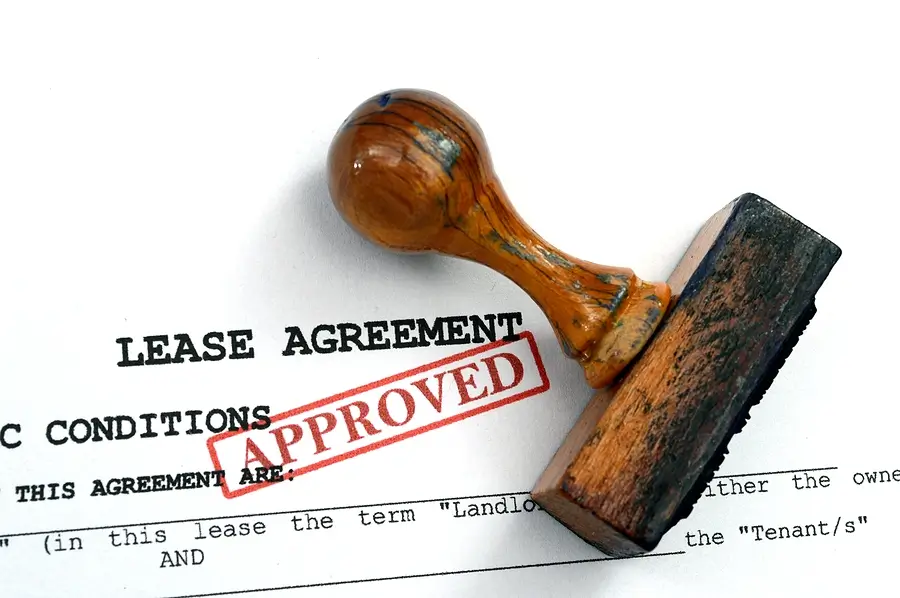If you’re a real estate investor or property owner, you know that leasing a property to a tenant involves more than just collecting monthly rent. A rental lease agreement is a legally binding lease that outlines the rental terms, setting clear expectations for both the landlord and the tenant. However, relying on a general lease agreement or a free lease agreement template can create significant issues down the road.
Every rental property is unique, and custom lease agreements ensure that your specific requirements, house rules, and local laws are addressed.
This article explains why a one-size-fits-all lease won’t work, the risks of using generic rental contract forms, and how a well-crafted lease agreement can protect your rental business.
The Risks of Using a Standard Lease Agreement
A landlord may turn to free rental agreement forms or online lease agreements because they seem convenient. However, these generic legal documents often fail to cover crucial details that could impact your process for leasing.
State-Specific Rental Laws
Lease agreements must comply with state laws and local laws governing landlord and tenant relationships. A general lease agreement may not include state-specific terms, leaving you vulnerable to legal disputes. For instance, Virginia has different tenant laws than California or Florida, so failing to customize your lease could mean missing essential legal disclosures.
Lack of Property-Specific Terms
A generic rental lease won’t account for the leased premises’ address, pet policy, quiet hours, or specific house rules. If you allow pets, you need to define pet or security deposits, breed restrictions, and liability clauses. Without these, a tenant violates the lease, and you may struggle to enforce it legally.
Limited Protection for Landlords
A rental agreement should clearly outline what happens if a tenant is responsible for repairing damages beyond normal wear and tear. You could face financial losses if your rental agreement lacks provisions for late rent, security deposit deductions, or necessary repairs as it is considered a legal form.
Failure to Address Unique Leasing Terms
Not all rental agreements should follow a fixed rental period structure. Some landlords prefer month-to-month agreements for flexibility. Others need specific clauses for subletting, utility payments, security deposit deductions, or rent increases. Without custom rental agreements, these essential details are often overlooked.
The Benefits of a Custom Lease Agreement
Creating a custom lease agreement tailored to your rental unit provides numerous advantages, ensuring a smoother process and better legal protection for all parties involved.
1. Clearly Defined Responsibilities
A customized rental lease agreement explicitly states what the tenant agrees to, including maintenance duties, rent payment schedules, and property inspection requirements. This prevents confusion about who is responsible for necessary repairs or wear and tear excepted damages.
2. Protection Against Lease Violations
If a tenant moves out early, a custom lease can outline termination fees or lease adjustment options. If a tenant fails to pay rent on the due date, you can enforce late fees and a grace period without ambiguity, or deduct from their security deposit to avoid lost rent.
3. Compliance with Local and Federal Laws
A well-drafted lease document ensures compliance with federal laws, such as lead-based paint disclosures, and state-specific regulations governing landlord-tenant relationships. This minimizes legal risks and ensures your rental business remains compliant.
4. Flexibility to Address Property-Specific Needs
Whether you own residential properties such as furnished rentals or condominiums, a custom rental agreement can address unique conditions. For example, if you rent a unit in Illinois, your lease may need provisions for occupants, smoking restrictions, or security requirements that differ from those in New York.
5. Stronger Legal Enforcement
A signed lease that includes state-specific terms and legally binding clauses gives you stronger legal standing in case of disputes. If a tenant fails to follow the rules and regulations, a detailed written agreement makes it easier to take legal action.
Key Elements to Include in a Custom Lease Agreement
To ensure your rental lease agreement is comprehensive, consider including the following essential clauses:
- Property Details: Include the property address, description, and amenities.
- Lease Term: Specify whether it’s a fixed-term lease or a month-to-month arrangement in the lease agreement form.
- Rent Payment: Define the monthly rent amount, the due date for the month’s rent, and acceptable payment methods.
- Security Deposit: Outline the security deposit amount, refund conditions, and deductions for damages.
- House Rules: Inform tenants about quiet hours, guest policies, and property maintenance responsibilities.
- Utilities and Fees: Clarify financial obligations for utility costs, late fees, and additional rent costs.
- Termination and Renewal: State the conditions for the lease payments, end of the lease, renewal options, and written notice requirements.
- Pet Policy: If applicable, detail pet deposit amounts, breed restrictions, and tenant responsibilities.
- Property Inspections: Define the frequency and conditions for inspection visits.
- Legal Compliance: Ensure adherence to state laws, local laws, and federal laws regarding landlord-tenant rights.
How Renter’s Warehouse Richmond Can Help
At Renter’s Warehouse Richmond, we understand the importance of custom rental agreements in protecting your rental business. Our property managers can draft a legally binding lease tailored to your rental property, ensuring compliance with state-specific laws while safeguarding your interests.
Whether you need a new lease document, a lease amendment, or guidance on rental application requirements, we’ve got you covered. Plus, our digital leasing solutions allow you to create and manage a lease agreement online, ensuring your documents are securely stored and that all parties sign electronically for maximum convenience.
Protect Your Investment with a Custom Lease Agreement
Using a one-size-fits-all sample lease agreement can lead to legal headaches, financial losses, and tenant disputes. By investing in a custom rental agreement, you ensure that your rental terms are clear and enforceable, and that the lease signed is tailored to your specific needs.
If you’re ready to streamline your leasing process and protect your investment, contact Renter’s Warehouse Richmond today. Our team of professional property managers will help you craft the perfect residential lease agreement, ensuring peace of mind for both the landlord and tenant.
👉 Learn more about our leasing services here: Renter’s Warehouse Richmond - Services
👉 Have questions about professional property management? Contact us today!





